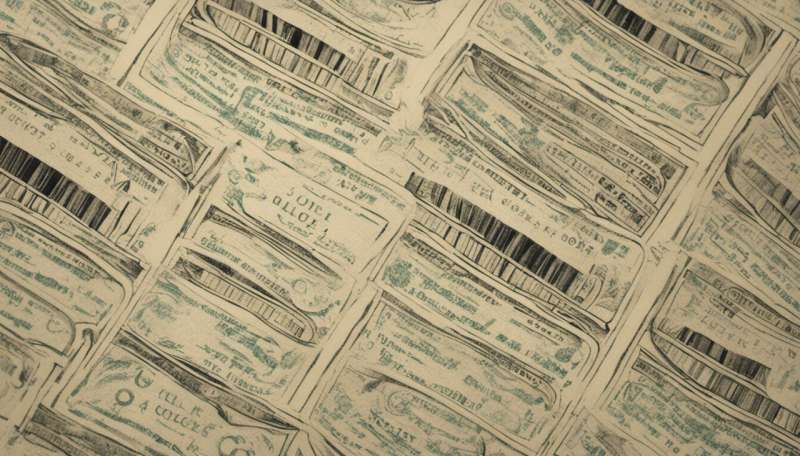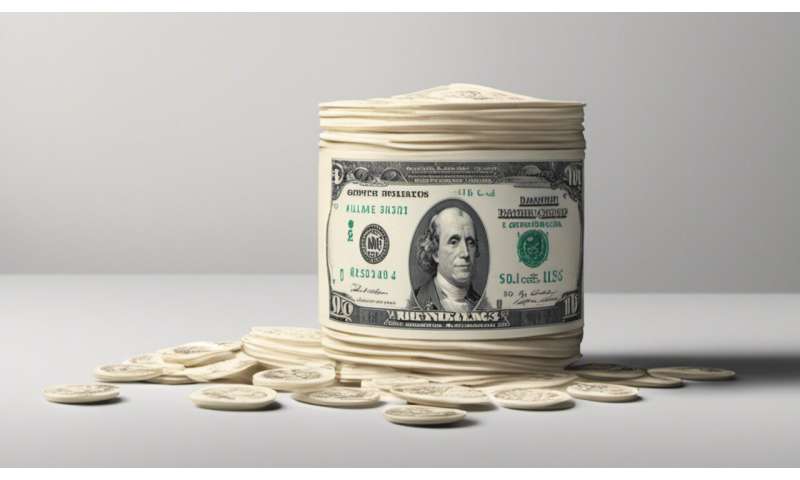Imagine having your period and no money for pads or tampons. Would you still go to school?

The New South Wales Education Department saidlast week said it would trial a program to hand out free pads and tampons in schools. Department secretary Mark Scott said: "We are developing work on a pilot program around this and details will be emerging on that shortly."
In a recent Australian study, more than one-third of年轻女性said they missed at least one class, either atschoolor university, in the past three months due tomenstrual symptoms, including pain and fatigue.
Despite the fact menstruation can have a significant effect on around 50% of a school's population, access to period products (such as pads and tampons)is not yet universal. Not even in Australia.
Young women are missing school because of this. This affects their mental health as well as their ability to participate fully in life.
Missing out on education
Period poverty is the lack of access to sanitary products, menstrual hygiene education, toilets, hand-washing facilities and waste management.
这是一个问题有一个更大的影响n who are already marginalized. Many young women in remote Indigenous Australian communities are not attending school for several days each month during menstruation.
Researchsuggests this is due to the high costs of feminine hygiene products, embarrassment and overcrowded bathroom facilities.
While typically thought of as only physiological, periods and menstrual cycles are tied to psychological health. A lack of sanitary products can bring about feelings of profound shame and embarrassment.

Period poverty in developed countries is一个ssociated with一个lower quality of life, poor self-esteem and mental-health issues.
While there is no Australia data on how many women are affected, a sample of college women in the United States found 14.2% experienced period poverty in the past year. An additional10% experienced it every month.
Worryingly, nearly half of the respondents experiencing period poverty reported symptoms consistent with moderate to severe depression.
And having poor access to sanitation products during adolescence has long-termmental healtheffects throughout a woman's life.
Seeing red: outrage about periods
Researchhas found stigma and taboo about menstruation continue to be a problem. Many girls feel embarrassed to talk about it or ask for help.
Menstruation is frequently framed as troublesome, compared to the "exciting and powerful" bodily changes male teenagers go through when students aretaught一个bout them in sex education.
Society's repulsion towards menstruation can be seen in ads for menstrual products that, until only recently, did not show blood. And when they did, it was met withconsiderable social outrage.
However, attitudes are starting to shift.
Since 2015, Australian charityShare the Dignityhas been working to reduce the impact of period poverty by installing vending machines that dispense free period products in schools, homeless shelters and other locations.
In 2019, Australiaremovedthe GST on period products. And this yearIsobel Marshallwas named the 2021 Young Australian of the Year in recognition of her work to fight menstrual stigma and period poverty.
But there's more we can do.
Free period products in schools
Scotland was thefirstcountry in the world to make period products free to everyone who needed them in 2020.
New Zealand has一个nnouncedthe rollout of free period products in schools nationwide from June this year.
Victoria hasinstalled dispensing machinesfor period products in every government school. And South Australia recently announced it would provide free sanitary products to all female students in year 5 and above.
South Australian Education Minister John Gardner hassaid: "We want to ensure that no girl or young woman in South Australia is missing school because they don't have access to sanitary products."
This International Women's Day it's time to rethink menstrual education in schools to destigmatise periods, encourage youngwomento seek help, and put access to period products for all Australians on the agenda.
This article is republished fromThe Conversationunder a Creative Commons license. Read theoriginal article.![]()














